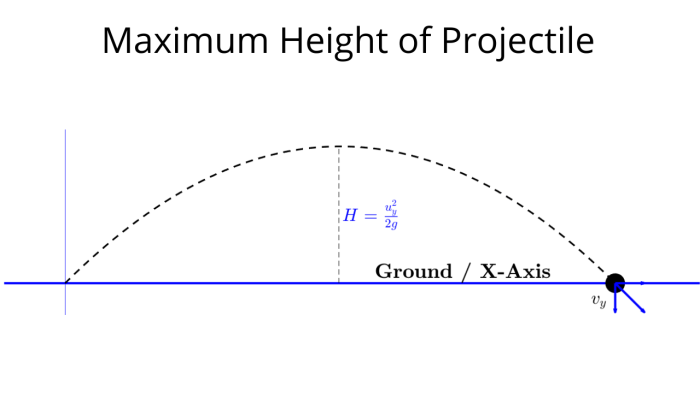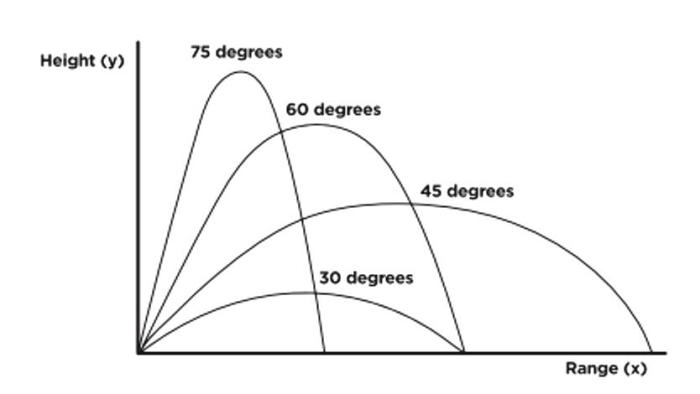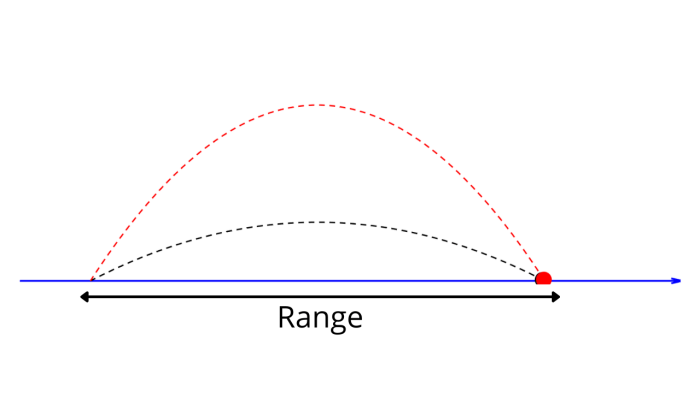Choose the true statement about a firearms maximum projectile range – The maximum projectile range of a firearm is a crucial factor in determining its effectiveness in various applications. Understanding the factors that influence range, calculating it accurately, and considering the firearm’s characteristics and safety considerations are essential for responsible firearm use.
This article delves into the intricate world of firearms and their maximum projectile range, providing a comprehensive overview of the science and practical implications associated with this aspect of firearm performance.
Factors Influencing Maximum Projectile Range
The maximum projectile range of a firearm is influenced by several factors, including:
Barrel Length
Longer barrels generally result in higher projectile velocities, which in turn increases the maximum range. This is because the propellant has more time to burn and accelerate the projectile before it exits the barrel.
Projectile Velocity
The initial velocity of the projectile is a crucial factor in determining its range. Higher velocity projectiles travel farther due to reduced air resistance and less time spent in the atmosphere.
Environmental Factors
- Wind:Crosswinds can significantly affect projectile trajectory and range. A tailwind can extend range, while a headwind can shorten it.
- Altitude:Higher altitudes result in lower air density, which reduces air resistance and increases projectile range.
Calculating Maximum Projectile Range
Calculating maximum projectile range involves using formulas and methods that take into account the factors discussed above. One common formula is:
R = (V^2
sin(2θ)) / g
Where:
- R is the maximum range
- V is the initial velocity
- θ is the launch angle
- g is the acceleration due to gravity
Online calculators and software can also be used to estimate projectile range based on various input parameters.
Ammunition and Firearm Characteristics

Ammunition and firearm characteristics also play a role in determining maximum projectile range:
Projectile Weight and Shape
Heavier projectiles have higher momentum and are less affected by air resistance, resulting in longer ranges. Streamlined projectiles also experience reduced air resistance.
Cartridge Type and Powder Load
Cartridge type and powder load influence projectile velocity. Higher powder loads and cartridges designed for long-range shooting can increase projectile range.
Firearm Design
- Rifling:Rifling imparts spin on the projectile, which stabilizes its flight and improves accuracy and range.
- Twist Rate:The twist rate of the rifling affects projectile spin and stability, which can impact range.
Applications of Maximum Projectile Range

Understanding maximum projectile range is crucial in various applications:
Hunting
Hunters need to estimate range accurately to ensure ethical and effective shots.
Target Shooting, Choose the true statement about a firearms maximum projectile range
Long-range target shooters require precise knowledge of maximum range to hit distant targets.
Military Operations
Military snipers and artillery rely on accurate range calculations for effective engagement.
Safety Considerations: Choose The True Statement About A Firearms Maximum Projectile Range

Firing firearms at maximum range requires adherence to safety precautions:
- Backstop:Ensure a safe backstop to prevent projectiles from traveling beyond the intended range.
- Wind Conditions:Be aware of wind conditions and adjust for potential trajectory deviations.
- Firearm Maintenance:Regularly inspect and maintain firearms to ensure proper function and accuracy.
FAQ Insights
What factors influence the maximum projectile range of a firearm?
Barrel length, projectile velocity, and environmental factors such as wind and altitude.
How can I calculate the maximum projectile range of my firearm?
Use formulas or online calculators, considering factors like projectile weight, shape, and firearm design.
What safety precautions should I take when firing firearms at maximum range?
Ensure a safe firing environment, wear appropriate safety gear, and be aware of potential hazards.